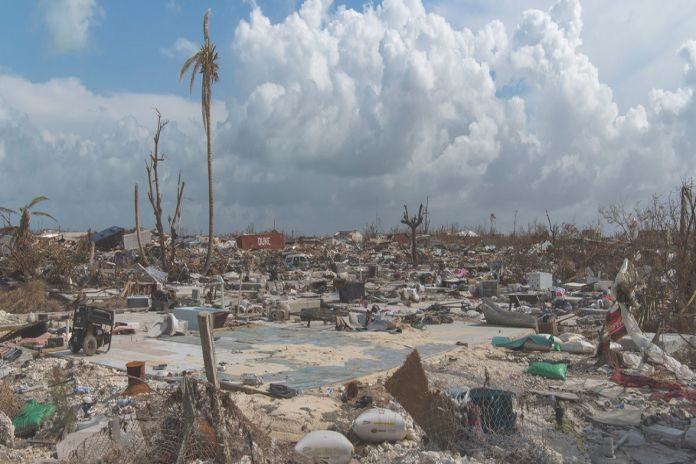NASSAU, Bahamas — UN Secretary-General António Guterres issued the charge on Friday during a visit to The Bahamas, which continues to reel from the onslaught of hurricane Dorian, meantime UN agencies are on the ground to support relief efforts in the affected islands of Abaco and Grand Bahama.
The UN chief expressed international solidarity with the government and people of the island nation.
“In some areas, more than three-quarters of all buildings have been destroyed, hospitals in ruins or overwhelmed, schools turned into rubble. Thousands of people will continue to need help with food, water and shelter, and many more facing the uncertainties of the future after having lost everything,” he said.
Secretary-General Guterres noted that the climate crisis has generated “turbocharged” hurricanes and storms, which are occurring with greater intensity and frequency. And without urgent action, climate disruption will only get worse, packing what he described as “a triple punch of injustice.”
“First, the worst impact is on countries with the lowest greenhouse emissions; The Bahamas are a very good example of that. Second, it is the poorest and most vulnerable people in those countries who suffer most, and again, the same has happened with the communities in The Bahamas. And third, repeated storms trap countries in a cycle of disaster and debt.”
While the financial cost of hurricane Dorian has not yet been determined, Guterres estimated it will be in the billions of dollars.
“The Bahamas cannot be expected to foot this bill alone. These new large-scale climate-related disasters require a multilateral response. Climate financing is one element,” he said. “We must reach a target of one billion per year from public and private sources for mitigation and adaptation in the developing world, as rich countries have been promising for nearly a decade. And we must improve access to development financing. In cases like the Bahamas, I strongly support proposals to convert debt into investment in resilience.”
Above all, Guterres called for greater global action.
“The entire international community must address the climate crisis through rising ambition and action to implement the Paris Agreement. The best available science, as reported by the Inter-governmental panel on climate change, says we must ensure collectively that global temperature rise does not go beyond 1.5 degrees. And it says we have a window of less than 11 years to avoid irreversible climate disruption and that we must reduce emissions by 45 percent by 2030 and achieve carbon neutrality by 2050,” he continued.
“And this is why I am asking all leaders to come to the climate summit with plans, not speeches, in New York in one week’s time.”
In a major address at the United Nations, Secretary-General António Guterres warns of the dangerous threat posed by climate change and points to the massive benefits that climate action will generate. He calls on leaders to take up the challenge and expresses hope that today’s young people will usher in a new, greener future.





